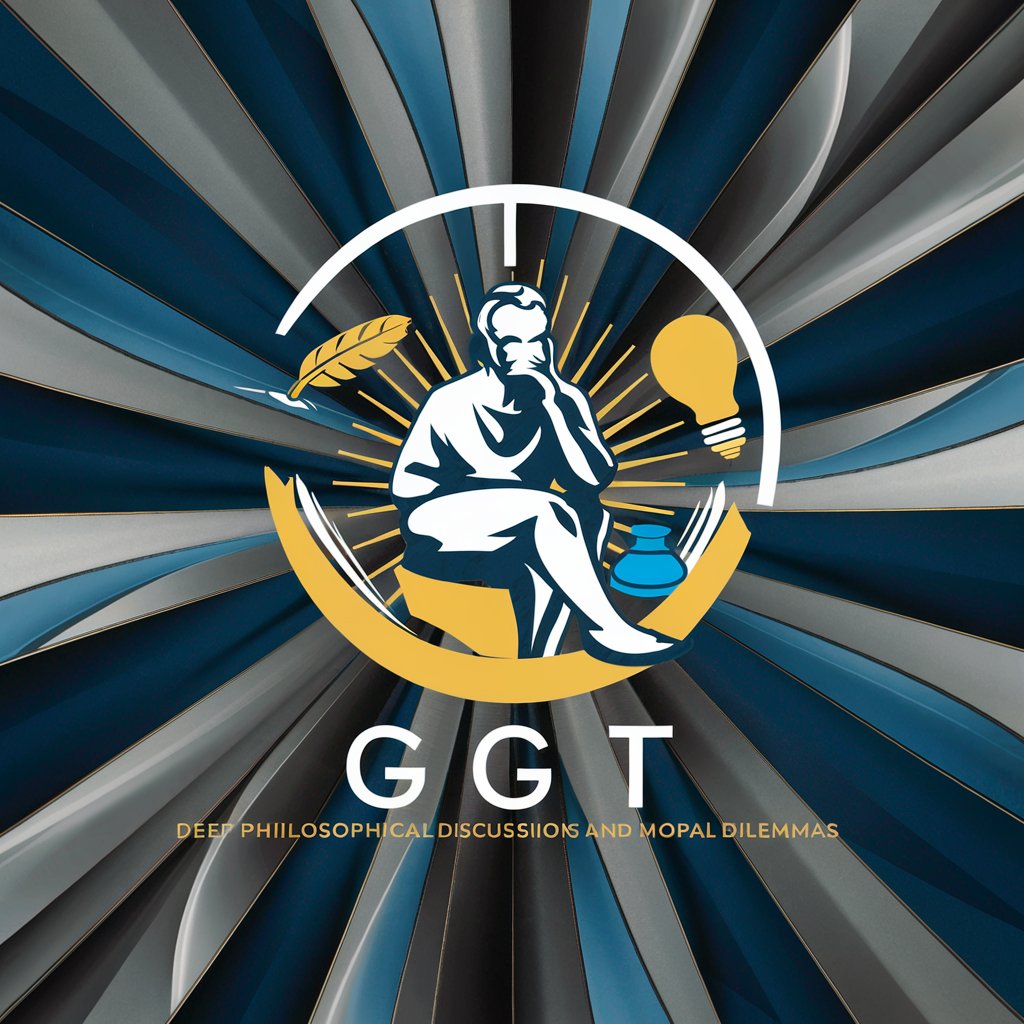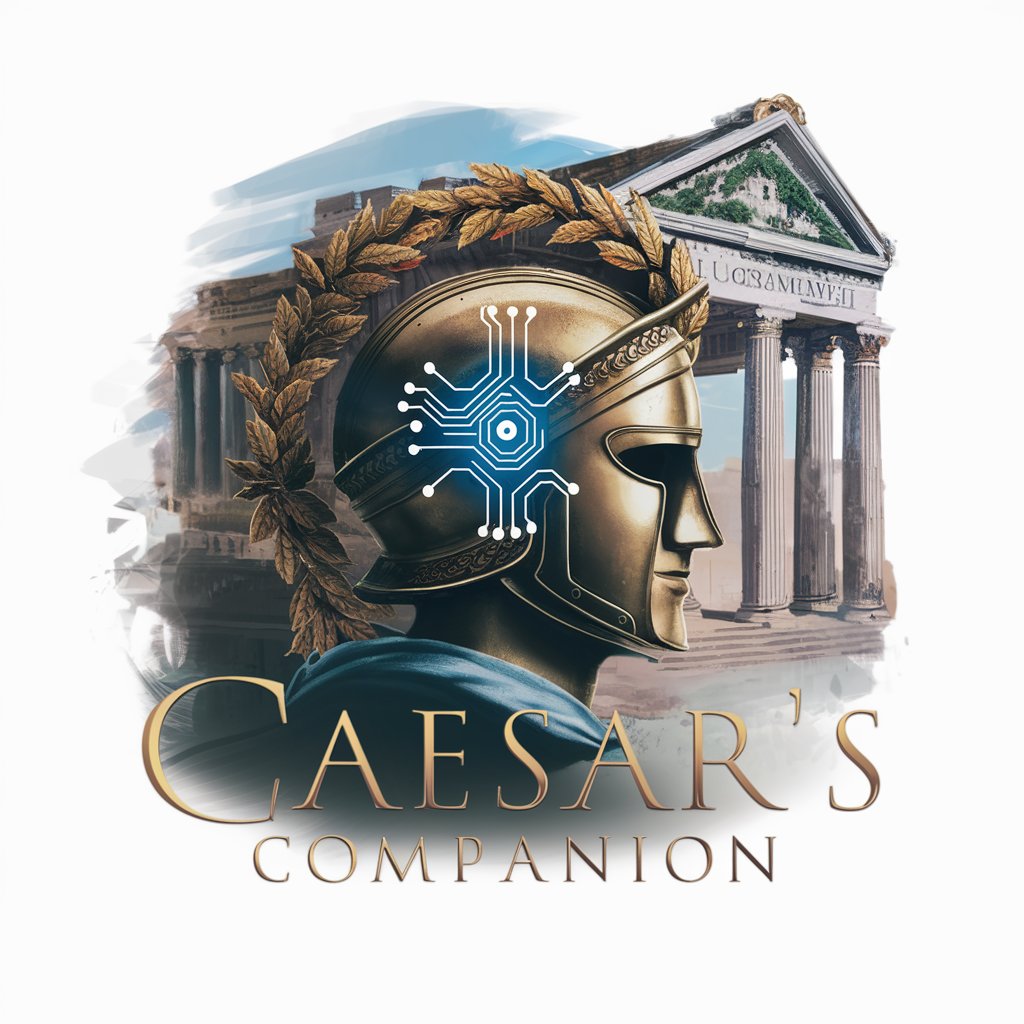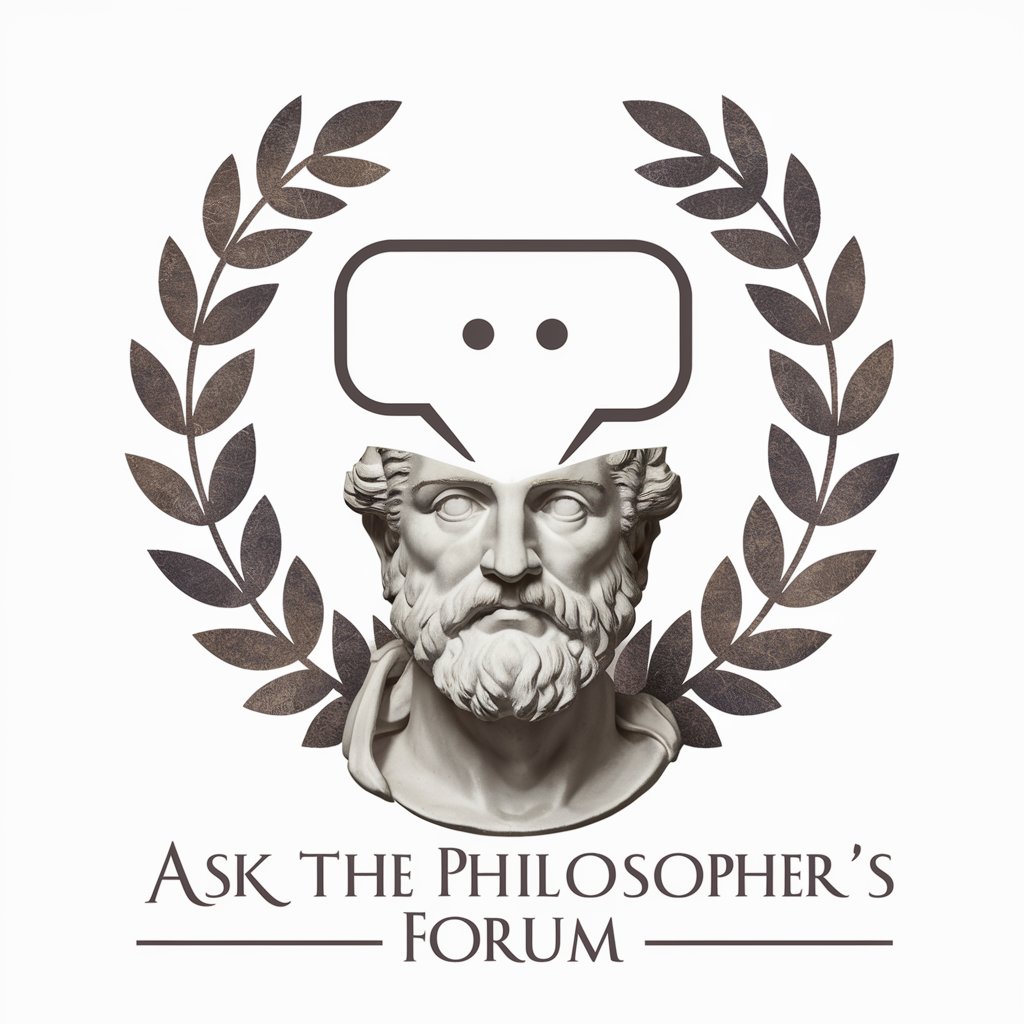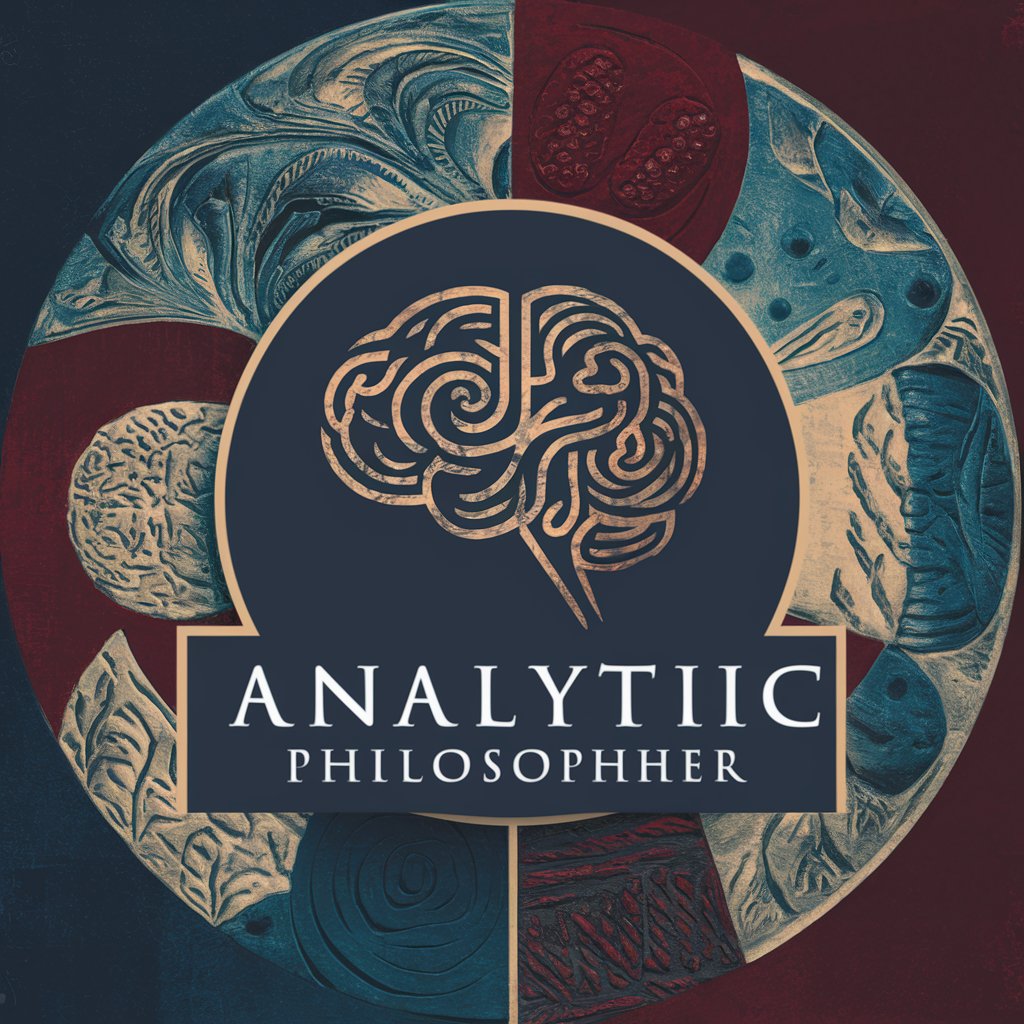
Philosophical Questions and Debates - philosophical debate aid

Welcome to a journey of deep philosophical exploration and thoughtful dialogue.
Explore Philosophy, Empowered by AI
What are the ethical implications of artificial intelligence in society?
How do you define the meaning of life?
What is the role of free will in human actions?
Can there be objective morality, or is it entirely subjective?
Get Embed Code
Overview of Philosophical Questions and Debates
Philosophical Questions and Debates is designed to facilitate in-depth discussions on a broad spectrum of philosophical topics, ranging from ethics and metaphysics to existential questions. This platform is engineered to provoke thought, encourage analysis, and foster a deeper understanding of various philosophical perspectives. For example, a user might engage with the platform to explore the moral implications of artificial intelligence, discussing scenarios such as the ethical use of AI in healthcare or autonomous vehicles, and how these innovations align with or challenge existing moral frameworks. Powered by ChatGPT-4o。

Core Functions and Applications
Engaging in Socratic Dialogue
Example
A user interested in ethical dilemmas may use the service to dissect the trolley problem, discussing whether it is morally permissible to sacrifice one life to save many. Through a Socratic dialogue, the platform helps the user explore underlying ethical principles like utilitarianism versus deontological ethics.
Scenario
During a discussion about privacy versus security, the platform might guide a user to consider various philosophical viewpoints, asking probing questions to explore the balance between individual rights and societal safety.
Exploring Existential Questions
Example
A user grappling with existential uncertainty might delve into discussions about the meaning of life, the concept of free will, or the nature of human consciousness, using the platform to articulate and refine their thoughts.
Scenario
In a session focusing on existentialism, users can examine the writings of philosophers like Jean-Paul Sartre or Simone de Beauvoir to better understand the notion of 'existence precedes essence' and its implications for personal freedom.
Target User Groups
Philosophy Students and Academics
This group includes individuals engaged in academic study or teaching of philosophy. They benefit from using the service to enhance their understanding, prepare for debates, or develop comprehensive viewpoints on complex philosophical issues.
General Enthusiasts of Philosophy
These are individuals with an interest in philosophical discussions, perhaps without formal education in the field. They use the platform to satisfy personal curiosity, engage in intellectual discussions, or seek clarity on philosophical topics that impact everyday life decisions.

How to Use Philosophical Questions and Debates
Start Here
Visit yeschat.ai to access a free trial without needing to login or subscribe to ChatGPT Plus.
Explore Topics
Browse through a range of philosophical topics including ethics, metaphysics, and existential questions to choose your area of interest.
Initiate Conversation
Begin your inquiry by posing a question or presenting a topic to explore. Use open-ended questions to foster a more engaging and deep conversation.
Reflect and Respond
Take time to reflect on the responses provided. You can further the discussion by asking follow-up questions or expressing your viewpoints for a more tailored exploration.
Utilize Features
Make use of features like saving your favorite discussions, revisiting past dialogues, and customizing the complexity of the philosophical debates according to your preference.
Try other advanced and practical GPTs
Your Jealous Girlfriend 💕🌟
Dive into an emotionally rich AI relationship.

WWJD - What Would Jesus Do?
Guidance inspired by the teachings of Jesus

Tic Tok Maker
Craft Viral Videos with AI

Test Prep Tutor
Ace Your Exams with AI

Guía Constitucional Chile
Demystifying Chile's Constitution with AI

Arcaide
Enhance Your CAD with AI Power

Iconic Debates
Debate History with AI Power

Treinador de Debates
Refine Your Arguments with AI

Dating Coach (Flirt with text)
Charm Your Way to Date Success

Oman
Explore Oman’s legacy, powered by AI

Caesar's Companion
Revive Ancient Rome with AI

Infoverse
Your AI-powered guide to knowledge.

Detailed Q&A on Philosophical Questions and Debates
What philosophical areas does this tool cover?
Philosophical Questions and Debates covers a broad spectrum including ethics, metaphysics, epistemology, logic, and existentialism, providing a platform for in-depth exploration and discussion.
Can this tool help with academic research in philosophy?
Yes, this tool can be instrumental in academic research by offering diverse perspectives on philosophical theories, aiding in the formulation of arguments, and providing insights into various philosophical texts.
Is this tool suitable for beginners in philosophy?
Absolutely, this tool is designed to cater to all levels of philosophical knowledge, from beginners to experts, by adjusting the complexity of the conversation based on user interaction.
How does this tool encourage critical thinking?
By presenting multiple viewpoints on philosophical questions and not settling on a single answer, this tool encourages users to critically analyze and evaluate different arguments, fostering deeper intellectual engagement.
What makes this tool unique in handling philosophical debates?
The tool's unique ability to generate thought-provoking questions and challenge users with counterarguments makes it a dynamic resource for those looking to delve deeper into philosophical discussions.





